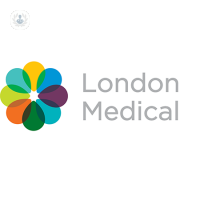Growth disorders
Dr Helen Spoudeas - Paediatric endocrinology, diabetes & metabolism
Created on: 06-22-2016
Updated on: 05-12-2023
Edited by: Carlota Pano
What are growth disorders?
Growth disorders are anomalies or irregularities during a child’s growth and development. This means that a child can either grow more slowly or faster when compared to other children of the same age. Weight and height are the main, more evident, characteristics of growth. When these measurements are different from the standard growth chart, there may be a growth disorder present. You should have your child examined periodically to determine whether there are irregularities in their growth process.

Prognosis:
If a child is suffering from a growth disorder, this may be associated with potential cognitive impairment and impaired verbal skills. In turn, these may evolve into social and emotional issues.
What are the signs of growth disorders?
The most common growth disorder symptoms include:
- A discrepancy in the growth to age ratio;
- Lack of appetite;
- Crying;
- Paleness;
- Frequent vomiting;
- Diarrhoea;
- Constipation;
- Sleep disorders;
- Apathy;
- Weight loss.
How are growth disorders diagnosed?
To formulate an accurate diagnosis, your child needs to be examined by a doctor. The doctor will measure your child against the growth curves and measure their weight and height against the parent’s weight and height. Furthermore, an X-ray scan can assess the child’s bone development stage and determine whether there is a growth disorder when compared to other children of the same age. Should the paediatrician advise you to see other specialists, treatment will eventually involve other doctors as well.
What causes growth disorders?
Growth disorders can be caused by genetic, psychological, hormonal, nutritional and environmental factors:
- Growth hormone deficiency, which is essential during the growth and development process;
- Metabolic disorders and malabsorption syndromes (for example, coeliac disease);
- Congenital malformations of the organs;
- Malnutrition (excesses, or imbalances in a person's intake of nutrients);
- Genetic factors;
- Psychological factors;
- Thyroid disorders;
- Urinary tract infections.
How can growth disorders be treated?
The treatments for growth disorders greatly depend on the underlying cause.
Which doctor should I talk to?
First of all, you should see a paediatrician. The paediatrician may refer your child to other specialists and based on further testing and diagnosis, your child may be treated by an endocrinologist, physiotherapist, nutritionist, psychologist or psychiatrist.














